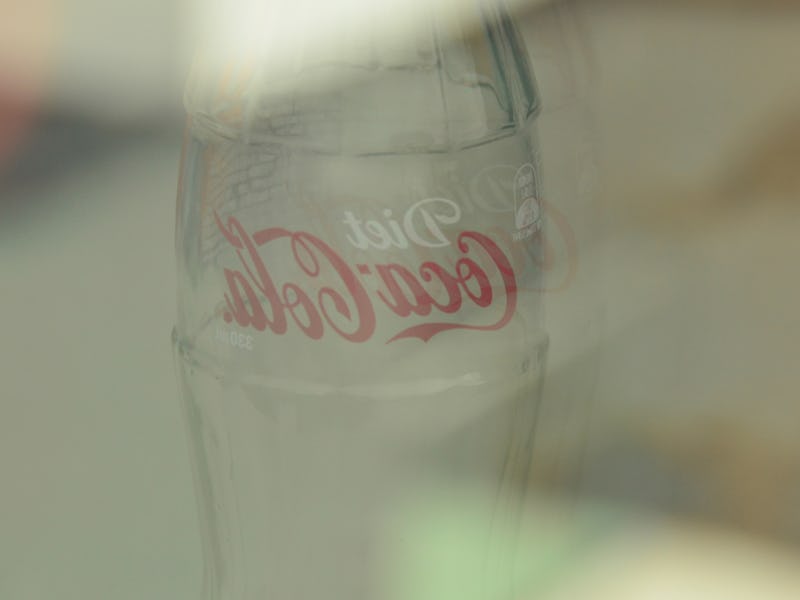Diet Soda Is a Nutritional Scam
Fake sugar puts people at risk of obesity and diabetes — just like regular sugar. So what's the point?

Diet sodas, by nature of having the word diet upfront, are the healthier versions of sodas, right?
Nope, warns a study published in PLOS Medicine on Tuesday. In the latest in a string of slams against the sugar industry, diet sodas were vilified as heavy contributors to chronic diseases. In fact, the so-called sugar-free alternatives are often worse for health than the real stuff: think obesity, type 2 diabetes, heart disease, and stroke.
The survey study found that not only is diet soda horrible for you, it actually triggers mechanisms that offset the energy and sugar intake that your body should be sensing, making you want more sugar, more sweetness, just plain more. Far from a diet drink, diet soda actually packs on the pounds by fooling your brain into thinking that you aren’t satisfied and that there’s no harm in snapping off the tab of another diet soda, because you’re really not consuming any calories in the first place.
The problem here is two-fold. One is marketing: from Crystal Pepsi to the emphasis on “diet” being a healthier option, there’s no doubt beverage companies are attempting to turn a spate of bad publicity about their role in the obesity epidemic into a positive one.
The more pressing problem is the fact that artificial sweeteners are increasingly, worryingly prevalent. Options like Stevia, aspartame, and other chemically produced sugar substitutes contribute nearly half of the added sugar in the average American’s diet. And it’s not just an American problem — the World Health Organization is getting involved, since much of the world is addicted to the sweet fizz of carbonated drinks, diet or otherwise, pushing national governments to consider sugar taxes on beverages, warning labels, and school bans.
Large beverage companies, expectedly, are not exactly thrilled about these proposals. Back in March 2016, Coca-Cola UK’s Vice President, Leendert den Hollander, told The Guardian, “We don’t believe the sugar tax is the right thing to be done. We are not debating the issue, we are debating the solution. The facts don’t suggest that a sugar tax works to change behavior.”
But soda taxes seem to work. Mexico City has seen a reduction in soda consumption from taxes, along with others. And part of the problem with obesity and diet soda is a feedback loop of sorts, according to The Lancet, which found that obesity soars among those who swig diet soda, primarily because those people most in need of a drink substitute mistake “diet” versions of their favorite colas as healthier. And a study released in 2012 found that our brains actually have a hard time recognizing the difference between sweeteners, which can trick us into believing we are being healthier with our diet drinks, leading us to consume even more.
Diet sodas, in other words, aren’t healthy, and the best thing a person hooked on diet drinks can do is give them up. They’re making us fat, sick, and creating a host of problems that aren’t worth the sugary fizz. Maybe swill some seltzer instead.